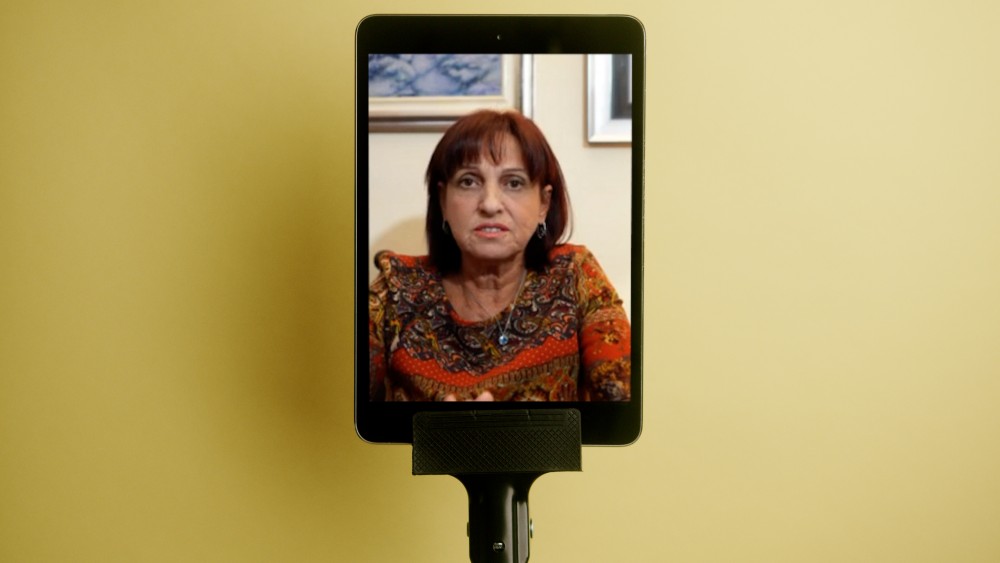Return to the country of origin
Leaving Switzerland after serving a sentence
Swiss prisons comprise a large majority of foreign nationals (70% according to the latest statistics). If they do not have legal residency status or are stripped of it because of a court decision to deport them, this can inevitably mean having to leave Switzerland once the sentence is served. They must then return to their country of origin, which may not always be familiar to them even they are originally from there. In 2021, 1,895 persons were deported after serving their sentences (Federal Statistical Office). This situation often leads to frustration, anger or distress for these individuals. This puts pressure on the prisons and is detrimental to the general atmosphere.
What is the best way to prepare their return? How can we ensure that the time spent in prison is used to help them reintegrate into their country of origin? To answer these questions, a working group led by the Fribourg Centre for Forensic Psychiatry and the Swiss Centre of Expertise in Prison and Probation (SCEPP) has brought together a number of key players to work collectively on improving this complex situation. There are many players: from the first moment of incarceration, to the development of return projects with various partners, to the actual return to the country of origin, the process can involve dozens of local, cantonal, federal and international bodies. Smooth interaction between all participants is thus crucial.
This website features a number of testimonials to help illustrate the role and added value of each of the players, going through the various stages from the start of incarceration to return to the country of origin. There are numerous challenges given that today many individuals are deported after serving their sentences with no prospects of reintegration. With this project, we show that solutions do exist for improved care which includes realistic prospects where returns are concerned.
In Detention
Develop a return support project as early as possible

Jacek Wojdyla«The main objective is to enable detainees who do not have the right to remain in Switzerland to live in freedom without committing offences in their country of origin.»Arriving in prison, awaiting sentencing and then accepting the sentence are important and often difficult stages for any prisoner. Additional challenges arise when it becomes certain that they will have to leave Switzerland after serving their sentence, after having lived here for many years or even a lifetime. In addition, the revocation or absence of a residence permit makes it more difficult to enforce the criminal sanction, as the persons concerned are often excluded from certain sentence relaxation schemes available to Swiss nationals or foreign nationals who hold a valid permit, such as access to a holiday scheme.
It is therefore important to view reintegration in the broader context and not just as a gradual return to Swiss society. To achieve this, implementation planning should consider the reality of the return as early as possible, so that enforcement can be organised accordingly. This helps give the people concerned the ability to act by placing them at the centre of the process, while reducing the risk of re-offending.
 Cindy von Bueren«It's only once the person concerned accepts the project as part of a working relationship that we can begin concrete projects.»
Cindy von Bueren«It's only once the person concerned accepts the project as part of a working relationship that we can begin concrete projects.»There are still many challenges to overcome: apart from the oft-cited lack of resources, there is also a lack of knowledge of the networks and players involved, and a lack of tools for professionals to guide the individuals concerned. Solutions thus include improved information sharing, coordination between all parties concerned, and the identification of relays and contacts in the country of return (relatives or organisations that can offer support once there).
The time spent in detention can thus be used to prepare for the future, and the sentence management plan can be seen as a tool to serve a project: what training, what contacts, what skills can be mobilised to pursue this objective? Professional skills, computer skills, language skills and accounting skills can all be developed in detention with a view to preparing for the return journey.
 Hervais Kamdem«Not being able to benefit from schemes that permit a relaxation in the execution of sentences will generate frustration and a feeling of injustice.»
Hervais Kamdem«Not being able to benefit from schemes that permit a relaxation in the execution of sentences will generate frustration and a feeling of injustice.»For those undergoing therapy, whether or not they are subject to an institutional therapeutic measure, the absence of a project can lead to stagnation in the therapeutic process. It is also important to be able to envisage how treatment, if necessary, can continue after leaving Switzerland. The active participation of the persons concerned is therefore essential. The aim is not to use this personalised care as a means of exerting pressure to facilitate departures from Switzerland, but rather to make the most of the time spent in detention to implement a meaningful project.
Transition
Accompanying inmates through their process
 Michèle Demierre«It's important help people look within themselves to tap into their own resources.»
Michèle Demierre«It's important help people look within themselves to tap into their own resources.»Time spent in detention should be seen as a transition to the outside world. If a project can be defined soon after the start of the enforcement of a sentence, this will help to structure the sentence and offer real opportunities for the future. To achieve this, it is important for prisons to work hand in hand with organisations that support detainees in developing and implementing such projects, such as the International Social Service - Switzerland, certain cantonal Red Cross chapters and cantonal migration services.
These organisations first offer help in defining a professional or training project in line with the skills and experience of each inmate. Promoting a non-judgemental approach to the offences committed, they place the person back at the centre of the process, making it possible to envisage a return in dignity.
 Rahel Zbinden«The aim is for the person to return to their country of origin with good prospects for their future.»
Rahel Zbinden«The aim is for the person to return to their country of origin with good prospects for their future.»In practical terms, once contact has been established, the local partners will assess the situation in the country of origin and discuss their prospects with the persons concerned, taking into account family ties, personal skills and their financial situation. These dialogues are aimed at helping people to develop their own projects.
To build a realistic and sustainable project, working with the participants in the network is essential, and prisons must be directly involved. The project's success hinges on family ties or close friends in the country of origin, and being able to rely on a local network.
In the country of origin
From inmate in Switzerland to tour guide in Brazil
 Angela«Without the support I received, I can't imagine how I would have been able to reintegrate and get on with my life.»
Angela«Without the support I received, I can't imagine how I would have been able to reintegrate and get on with my life.»The fate of those who have been expelled from Switzerland after serving a sentence is often poorly understood. Since reintegration is primarily seen as a return to Swiss society, there is a lack of information about how these individuals are able to reintegrate into society once they are back in the country of origin.
But the challenges are even greater for the people who have been deported, starting with the risk of re-offending if they have no prospects after their return. A realistic project developed during detention in Switzerland can be the key to a successful return. To achieve this, the inmate will have had to tap into their own resources to devise a project that makes sense to them.
In the course of this process, many actors, both institutional and non-institutional, need to be mobilised along a chain linking, at both ends, the prison authorities in Switzerland and civil society and relatives in the country of origin.
 Lida Leskaj«It is important to establish a relationship of trust with the inmate concerned.»
Lida Leskaj«It is important to establish a relationship of trust with the inmate concerned.»Thanks to partners in the countries of origin, organisations such as International Social Service - Switzerland or Red Cross partner organisations can provide a link and monitor the progress of the project’s implementation on site. This means that the individuals concerned are not left without support.
In some countries, a liaison person appointed by the International Social Service or the Red Cross can provide individual support. For example, he or she can help them by putting their knowledge of the local economic context to good use. The local partner is also responsible for project-related expenses, as the money is not given directly to the individuals concerned.
The International Social Service monitors the implementation of each project remotely and checks all the documents relating to their implementation. Monitoring normally continues for a year, and sometimes longer, with the aim of identifying the conditions that enable projects to succeed.
Such monitoring cannot be carried out for everyone, primarily because resources are limited. However, successful experiences combined with sharing of know-how should make it possible to offer this support to a larger number of people in the long term.
Further information
An overview of return assistance offers
PartnersUsefull adressesDocumentation